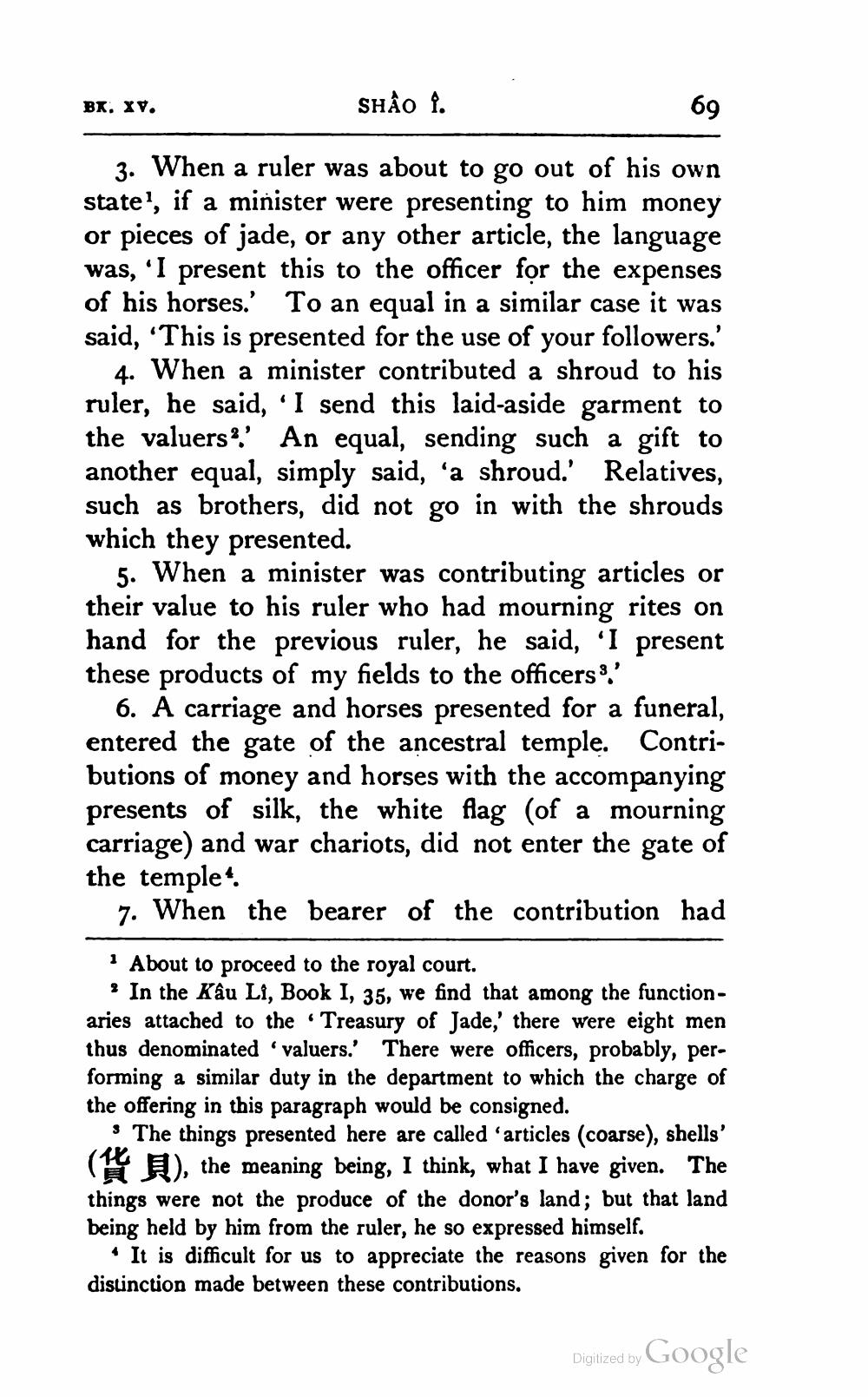________________
BK. XV.
SHẤo .
3. When a ruler was about to go out of his own state', if a minister were presenting to him money or pieces of jade, or any other article, the language was, 'I present this to the officer for the expenses of his horses.' To an equal in a similar case it was said, 'This is presented for the use of your followers.'
4. When a minister contributed a shroud to his ruler, he said, 'I send this laid-aside garment to the valuers?' An equal, sending such a gift to another equal, simply said, 'a shroud.' Relatives, such as brothers, did not go in with the shrouds which they presented.
5. When a minister was contributing articles or their value to his ruler who had mourning rites on hand for the previous ruler, he said, 'I present these products of my fields to the officers'
6. A carriage and horses presented for a funeral, entered the gate of the ancestral temple. Contributions of money and horses with the accompanying presents of silk, the white flag (of a mourning carriage) and war chariots, did not enter the gate of the templet.
7. When the bearer of the contribution had
* About to proceed to the royal court.
? In the Kâu Li, Book I, 35, we find that among the functionaries attached to the Treasury of Jade,' there were eight men thus denominated 'valuers.' There were officers, probably, performing a similar duty in the department to which the charge of the offering in this paragraph would be consigned.
The things presented here are called 'articles (coarse), shells' (HDD), the meaning being, I think, what I have given. The things were not the produce of the donor's land; but that land being held by him from the ruler, he so expressed himself.
• It is difficult for us to appreciate the reasons given for the distinction made between these contributions.
Digitized by Google




